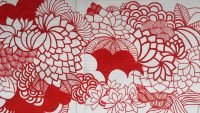‘Skategeezer’ Explores Death and Dying in New Book
Michael Brooke is the founder and publisher of the magazine, Concrete Wave. His love of skateboarding inspired him to write a book about death and dying, a field that he’s come to work in as a professional.
What inspired you to combine these two subjects of skateboarding and death?
I have been a skateboarder since I was 11 in 1975. For almost 25 years, I spent a huge amount of time and energy trying to change people’s perceptions of skateboarding and skaters. I promoted different types of terrain and encouraged older folks to skate (those over 20!) along with women. I was a huge proponent of longboarding and promoted it worldwide.
When I sold my magazine, Concrete Wave in 2018, I was dealing with a severe case of writer’s block. I felt I had said all that I needed to say within skateboarding after all those years slogging away. Skateboarding really had changed and this felt like a huge accomplishment. I felt it was imperative that I do something completely different than publishing and skateboarding. At one point in my life, I was volunteering at a local retirement home. I felt drawn to working in funeral services and wound up as a funeral director’s assistant.
In 2020, I finally broke through the writer’s block and started to write about my experiences as both a skateboarder and someone who saw death up close daily.
In weaving together these two very different topics, I intended to create a catalyst in the minds of people who normally wouldn’t feel comfortable discussing death. If you knew my work as a skateboarding writer, I hoped that you’d be intrigued by my writing as someone who spent quite a bit of time surrounded by death.
I was fortunate enough to team up with Nathan Ho to create this book. He is based in Australia and is about 25 years younger than me. His background is both skateboarding and spirituality. It was a very remarkable opportunity.
What are some of the lessons that skateboarding as a metaphor gives us to handle aging and ultimately, death?
For many skaters my age, we have had to confront the death of one or both parents. We may have had to deal with someone we know who has committed suicide. Many of us have to deal with the tragedy of a sudden death.
Older skaters who have been rolling for a few decades know that it’s all about getting out there and riding. We may not be able to match the current generation in terms of moves or speed, but the fact that we still love to skate is critical to our enjoyment. It keeps us feeling young and alive.
The reality is that everyone is getting older with each passing minute. But skaters have an opportunity to take all that skateboarding offers and move into their golden years with a sense of balance.
When you start out as a skateboarder, it can be challenging and painful. But as you face down your fears and move up to dropping into mini ramps and halfpipes, you realize that with each challenge, you grow both physically and mentally. You learn how to fall and handle pain. You also tap into the camaraderie that skaters feel worldwide.
As you face death and dying, you also can tap into a network of support. But it can be difficult to make that first call and reach out to people who can help you.
It might seem odd to think that calling a death doula is the equivalent to dropping into a bowl, but it can feel very intimidating for some. Skaters need to draw on their inner strength and push things forward.
What has your deathcare work done to help you know and understand things others might not?
This is something I discuss in some depth within the book. I am present at someone’s home when a loved one has passed. I ring the doorbell and the process begins. I am paying a visit that they dearly wish would never happen. This intimate and extremely close-up experience with death requires a hefty combination of emotional intelligence along with physical strength. Carrying a 200-pound body down a few flights of stairs is not easy, especially with family staring at your every move.
I see grief very close up. It is such a visceral and truly painful thing to experience. At the same time, it is extremely fulfilling knowing that I am there to support a family through this incredibly difficult time. The fact is if I didn’t think I could handle this job, I wouldn’t be doing it.
One of the phrases I keep repeating to people who are still incredulous that anyone would want to do this work is “you get a deep appreciation of life surrounded by death.”
I can tell you that after 500+ funerals, I know instinctively which family has spent quality time together. For example, you hear the glowing and deeply passionate stories from the grandchildren who had truly exceptional relationships with their grandparents.
I come across regret sometimes. Family members ruminate over what could have happened or what should have happened. Occasionally, I will see the results of painful recriminations and hatchets that have never been buried. These experiences are raw and ugly but they are a part of some people’s lives and they get carried into death. They make me hug my wife and kids that much more.
Being around death and helping people in whatever way I can makes me a better person and it has sure made me appreciate everything I have in my life.
Does skateboarding give its enthusiasts a kind of mindfulness that may also be helpful when thinking about life and death?
It certainly does for me, and I am sure many skaters would agree. For me, skateboarding is like meditation — but rather than resting, it’s about being in a flow state. Whenever I carve a bowl with my longboard, it feels like I am riding concrete waves. It’s a unique sensation of both inner peace and intensity. The intensity comes from knowing that you could fall at any moment.
Skaters know that a painful slam — or worse — is part of the experience — potentially. This dichotomy can be difficult for non-skaters to understand. But each day we ride, we know it feeds our soul. The joy that skateboarding brings peace to our minds. From here, anything is possible — including difficult conversations about death and dying.
You write that men in particular have difficulty talking about death. How has your book helped them?
Sadly, death and aging are still somewhat taboo and scary subjects for many men to discuss openly. But it is vital that men start having conversations about death and aging.
I have received excellent feedback from a number of men who skate. One person, in particular, had a deep fear of death — thanatophobia — and the book really helped him. It reassured him and calmed his mind. Truly, you cannot ask for any better feedback than this.
Nathan and I made the decision to make the book a free PDF to encourage as many people to read it as possible. We hope that people who find something of value in the book simply pay it forward. Examples of paying it forward include donating to charity, volunteering at a food bank or teaching a newbie how to do an Ollie.
In addition to his work with the Concrete Wave, Brooke is also the founder of Longboarding for Peace which organized events in 25 countries in six years, bringing together Palestinians and Israelis to skateboard together and trading 1,000 guns for skateboards in Southern California.
You can read about his book “The Concrete Wave” here and get the free download of “The Endless Wave: Skateboarding, Death & Spirituality” here.
Solace is now Tulip Cremation, the nation’s largest online direct cremation services provider, delivering world-class and compassionate care 24/7.
Proudly providing:
Denver cremation services
Los Angeles cremation services
Portland cremation services
San Francisco cremation services
Seattle cremation services



